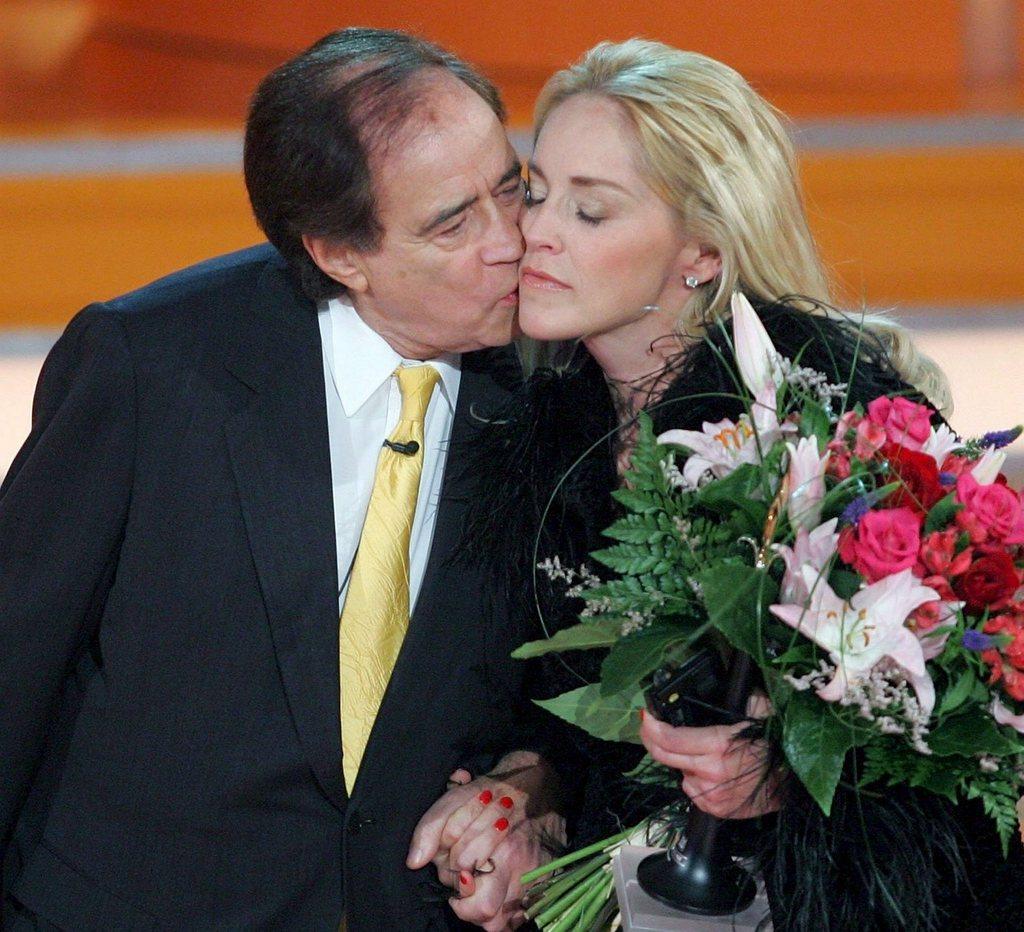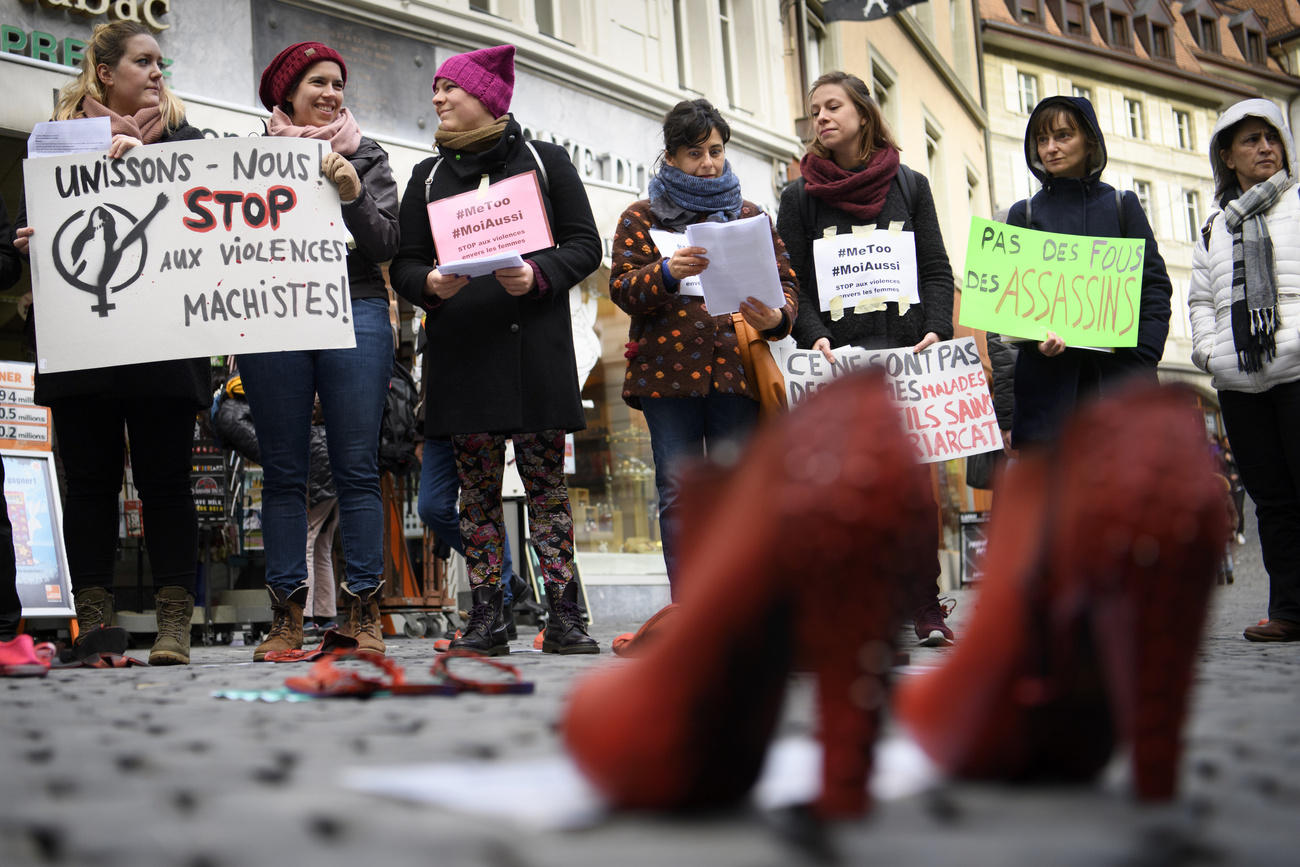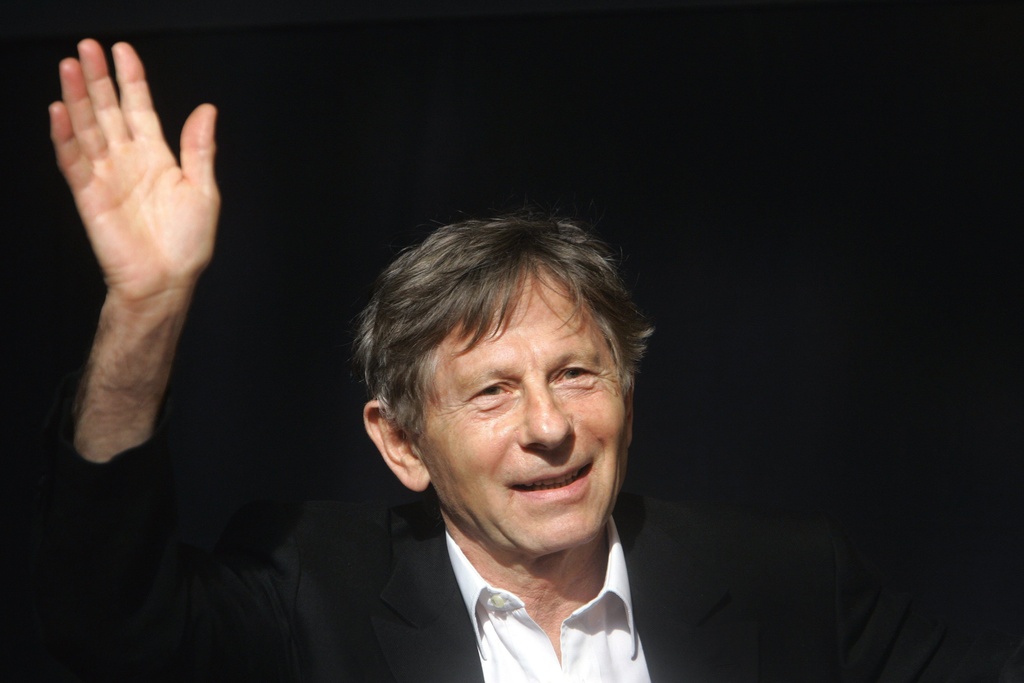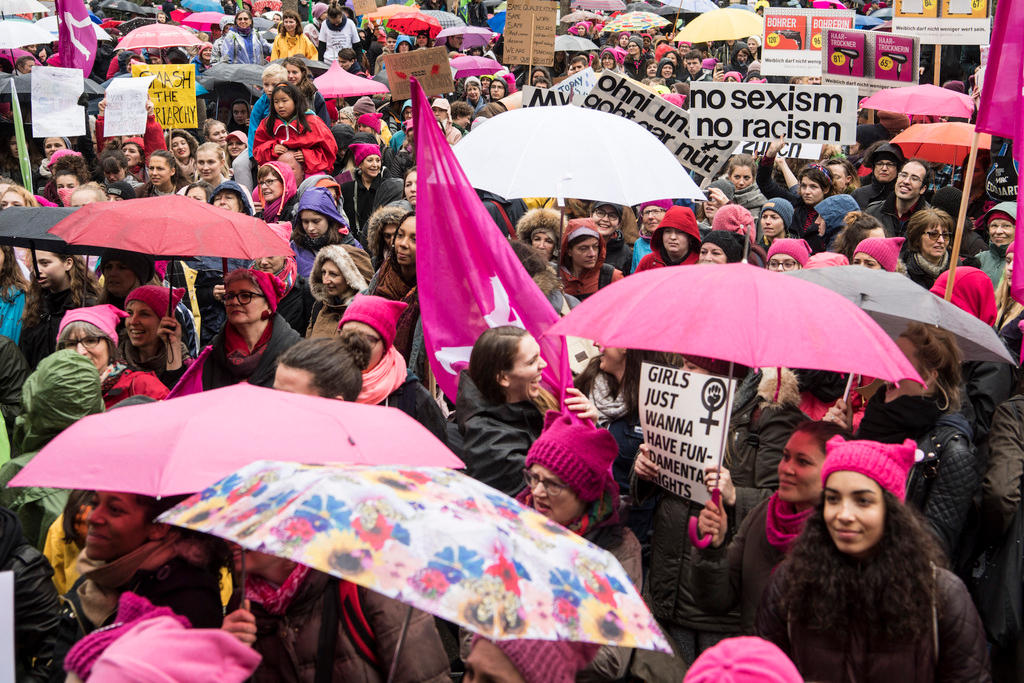Explainer: Swiss television’s blacklisting of Gérard Depardieu

The decision of Swiss public television, RTS, to stop showing films starring French actor Gérard Depardieu continues to generate heated debate. What are the issues, and why do some Swiss newspapers think RTS has “shot itself in the foot” and is “playing a dangerous game”?
Who is Gérard Depardieu?
Born in poverty in 1948, Gérard Depardieu is one of the most prolific and successful French film actors ever, appearing in more than 200 films, usually as the lead. He is probably best known outside France for his starring roles in Cyrano de Bergerac (1990), Green Card (1991) and as Obelix in the Asterix films (1999-2012).
He has been appointed a Chevalier of the Légion d’honneur, the highest French order of merit, and Chevalier of the Ordre national du Mérite, awarded by the French president. He also has citizenship of Russia and the United Arab Emirates.
Off screen, Depardieu owns various wine estates and restaurants – and his excesses involving alcohol have resulted in various incidents and road accidents. Negative headlines involving his behaviour include “Depardieu ‘apologises’ for publicly urinating on jetExternal link”.
Many women have accused Depardieu of sexual violence. In 2018, actress Charlotte Arnould sued him for rape; the case has been under investigation since 2020. Another lawsuit against him for sexual abuse has been ongoing since mid-September, regarding an alleged 2007 incident. Depardieu denies the allegations.
Why’s he in the news now?
On December 7, his reputation took another blow when French television channel France 2 broadcast a documentary, Gérard Depardieu: The Fall of the OgreExternal link, in which the actor made comments widely considered to be misogynistic and obscene, including about a ten-year-old girl, and sexually harassed a translator.
On December 31, Switzerland’s French-language public television channel, RTS, confirmed media reports saying it would no longer show any films starring Depardieu, following the lead of some Belgian, French and Canadian channels.
This “pragmatic” decision would be re-evaluated depending on how the situation evolved, an RTS spokesperson said. He explained that a film would be selectively removed from the schedule if “we have the feeling that the majority of the audience could feel offended by a work or a personality”. This could happen even if the courts have not yet delivered a verdict, he said. In February 2023 RTS made a similar decision concerning French comedian Pierre Palmade, who caused an accident while driving under the influence of cocaine in which three people were seriously injured.
On Saturday, RTS’s German-language counterpart, SRF, said it was following the situation and would take a decision on films featuring Depardieu on a case-by-case basis. It said it had shown Le Dernier Métro (The Last Metro), starring Depardieu and Catherine Deneuve, on December 29, but no films with the actor were currently scheduled.
What was the reaction to the documentary?
French Culture Minister Rima Abdul Malak said Depardieu’s comments were “disgusting” and that his behaviour was a “disgrace to France”. The actor was stripped of the National Order of Quebec and his waxwork was taken out of the Grévin Museum in Paris.
However, on December 20 French President Emmanuel Macron, publicly a big fan of Depardieu, waded into the controversy. “You will never see me taking part in a manhunt,” he said during a wide-ranging interview on French television. What did he think of Rima Abdul Malak’s moves to strip Depardieu of the Légion d’honneur? “The order of the Légion d’honneur is not a moral order,” he declared, adding that his culture minister had “got ahead of herself”. Depardieu, after all, “had made France proud”.
Then on December 25 French newspaper Le Figaropublished a letterExternal link signed by more than 50 names in the French film and music industry – many from Depardieu’s generation – who deplored the “lynching” and “torrent of hatred” against the “last sacred monster of cinema”. “When Gérard Depardieu is attacked in this way, it is art that is under attack,” they wrote.
Cue a backlash to the backlash. “Oh, it’s all right, it’s Gérard! How many times has this phrase been hurled at women who have been attacked, humiliated, told to smile and keep quiet?” wrote Maud VergnolExternal link in L’Humanité. “As if being the ‘sacred monster’ of French cinema offered a passport to impunity or conferred a right to obscenity.”

More
#Metoo debate is too simplistic, says Oscar-winning producer
What was the reaction in Switzerland to RTS’s decision to drop Depardieu’s films?
Swiss directors, producers, politicians and newspapers have all been taking sides in the debate.
“I think banishment in general is a bad idea,” said director Jacob Berger, whose 2002 film Aime ton père (Loving Father) stars Depardieu. “I think we could have chosen instead to show films that talk about these issues, that deal with the problem of the great abuser, including films starring Gérard Depardieu.”
RTS’s decision comes as its parent company (and also that of SWI swissinfo.ch) the Swiss Broadcasting Corporation (SBC) is coming under pressure, with voters set to decide on reducing the licence fee.
RTS “was shooting itself in the foot at the stupidest possible moment”, reckoned the Neue Zürcher Zeitung (NZZ) in an editorialExternal link on Friday. “If the SBC wants to prevent a drastic budget cut, it’s more dependent than ever on the public’s favour. The Depardieu censorship, on the other hand, is an own goal,” it said, pointing to a (non-representative) surveyExternal link in which four out of five respondents said they didn’t have a problem with a film starring Depardieu being shown.
“Nobody is forced to watch a film with Depardieu – neither on RTS nor anywhere else,” the NZZ said. “A more acceptable programme is just a click away. Mature viewers are in a position to form their own opinion.”
The Tages-Anzeiger agreed in its editorialExternal link, titled “Television doesn’t need a woke watchdog”, in which it complained of “undemocratic paternalism”. “You can find Depardieu funny, stupid or problematic, but how does RTS actually know how the audience really feels about him? Does the ‘majority’ feel hurt, as they claim in the Depardieu case? Were surveys carried out, were there demonstrations after the last Depardieu film? Or are those responsible simply extrapolating from their sensitivities to the audience?”
Le Temps in Geneva also thoughtExternal link RTS was playing “dangerous game” ahead of the licence fee vote. “Watching or listening to Gérard Depardieu is a choice […] but this must remain an individual, ethical or artistic choice. When RTS plays the censor, and moreover doesn’t give a damn about the presumption of innocence, the issue becomes political.”
For producer Pauline Gygax, however, the decision makes good sense. “By suspending his films, we’re telling all the victims of sexist and sexual violence that they are respected and listened to. And when you consider that in Switzerland almost every other woman is a victim, that’s important.”
Edited by Virginie Mangin

More
One in five Swiss women has been a victim of sexual violence

In compliance with the JTI standards
More: SWI swissinfo.ch certified by the Journalism Trust Initiative













You can find an overview of ongoing debates with our journalists here . Please join us!
If you want to start a conversation about a topic raised in this article or want to report factual errors, email us at english@swissinfo.ch.